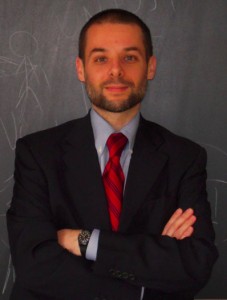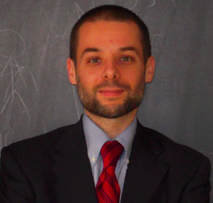Two St. Thomas professors helped translate Pope Francis’ first exclusive interview into English.
Theology professor Massimo Faggioli and Modern and Classical Languages professor Sarah Christopher Faggioli were two of the five U.S. scholars commissioned for the translation of the Italian interview. 
“Jesuit Father James Martin of America Magazine called me on my phone and he told me, ‘We have a delicate document to translate into English, and we want somebody who’s knowledgeable about Pope Francis, about theology, and who can keep a secret and who knows Italian very well,’” Massimo Faggioli said.
Massimo Faggioli, a native Italian, said his wife Sarah Christopher Faggioli, who teaches Italian, offered important contributions because “there are a few idioms, a few sentences that are quite delicate that I needed a native-English speaker to give the more accurate translation.”
The interview was published Thursday in the Jesuit-based America magazine as well as in 16 countries worldwide. Antonio Spadaro, the editor in chief of La Civilta Cattolica, an Italian Jesuit Journal, conducted the interview over the span of three meetings on behalf of La Civiltà Cattolica, America and several other major Jesuit journals around the world.
Massimo Faggioli said he translated 12,000 words on a four- or five-day deadline.
“I knew it was important, so I gave up some sleep,” he said.
When he was asked to translate the interview, Massimo Faggioli said he knew it would big news.
“In his interview, [Pope Francis] confirmed things that he said off-the-cuff occasionally; but in his interview, it’s on the record,” Massimo Faggioli said.
Massimo Faggioli said the interview truly encompasses Pope Francis.
“I think that this document is exceptionally clear and courageous and telling about what kind of man he is, what kind of Catholic, what kind of Jesuit,” he said.
Massimo Faggioli said “the most remarkable part of the interview” was that Pope Francis’ said the Church’s teachings are still relevant today.
The Catholic church, Massimo Faggioli said, has used some teachings in a way that has turned away church members – something the pope said was not good and needs to change.
In the interview, Pope Francis said, “God is in everyone’s life.
“Even if the life of a person has been a disaster, even if it is destroyed by vices, drugs or anything else, God is in this person’s life,” Pope Francis said.
Massimo Faggioli said he and his wife had to keep the interview a secret for two weeks, and they were not allowed to disclose anything.
“[The magazine] knew that it was a very important interview. [Pope Francis] says things on the record about gays, about politics about the church that are very remarkable,” he said.
Caroline Rode, Zach Zumbusch and Briggs LeSavage contributed to this report.




See the interview here: http://www.americamagazine.org/pope-interview
My husband and I are so pleased that our daughters are attending a university that has professors of such grandeur. God is good all the time.
Loved the interview, loved the translation. There were a few places where I thought, “Wait, he really said that?” and I went to the Italian original and… “Yep, he really said that.” It’s very cool to learn that some of our own were involved.
One question for the Faggiolis, if they happen to read this: Can you elaborate at all what the Pope meant when he said, “To be sure, I have never been like Blessed Imelda, but I have never been a right-winger.” From my American political context, that’s a strange contrast to draw. Blessed Imelda was an essentially apolitical figure. Moreover, in the American Catholic Church, Imelda is a hero on the right wing, but considered a sad, probably lunatic case on the left wing (insofar as anyone is even aware of her). The America translation sheds only a little light on it, by explaining that Blessed Imelda was a “goody-goody”, I can’t wrap my head around what he’s getting at. Does “right-winger” convey a different meaning in Italian than American English? Is he just saying that his focus has never been on the institutional power structures of the Church?